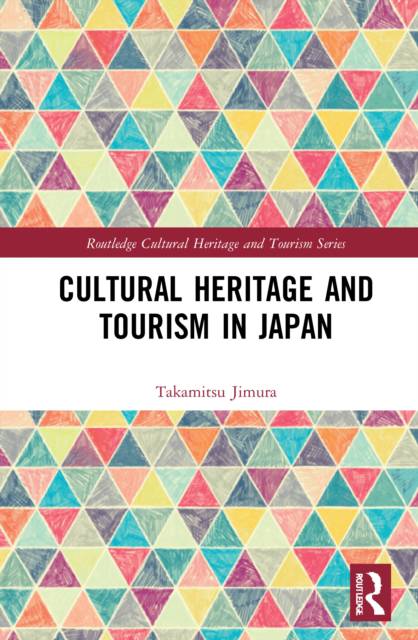
- Afhalen na 1 uur in een winkel met voorraad
- Gratis thuislevering in België vanaf € 30
- Ruim aanbod met 7 miljoen producten
- Afhalen na 1 uur in een winkel met voorraad
- Gratis thuislevering in België vanaf € 30
- Ruim aanbod met 7 miljoen producten
Omschrijving
This book offers a comprehensive understanding of cultural heritage in Japan and its relationship with both domestic and international tourism.
Japan has witnessed an increase in tourism, with rising visitor numbers to both established destinations and lesser known sites. This has generated greater attention towards various aspects of Japanese culture, heritage and society. This book explores these diverse aspects of everyday life in Japan and their interconnections with tourism. It begins with a conceptual framework of key theories related to heritage and tourism, serving as a useful apparatus for further discussions in the following chapters. Each chapter studies a specific aspect of Japan's cultural heritage, from the history of Japan, the development of war sites, such as Hiroshima and Nagasaki, to tourist destinations, indigenous communities and their places of residence, festivals such as matsuri, to popular culture and media. Each chapter discusses a certain type of cultural heritage first in a global context and then examines it in a Japanese context, aiming to demonstrate the relation between these two different contexts. In each chapter, furthermore, how a particular kind of Japan's cultural heritage is utilised as tourism resources and how it is perceived and consumed by international and domestic tourists are discussed. Finally, the book revisits the conceptual framework to suggest future directions for cultural heritage and tourism in Japan.
Written in an informative and accessible style, this book will be of interest to scholars, students and practitioners in the fields of tourism, cultural studies and heritage studies.
Specificaties
Betrokkenen
- Auteur(s):
- Uitgeverij:
Inhoud
- Aantal bladzijden:
- 276
- Taal:
- Engels
- Reeks:
Eigenschappen
- Productcode (EAN):
- 9780367028619
- Verschijningsdatum:
- 16/08/2021
- Uitvoering:
- Hardcover
- Formaat:
- Genaaid
- Afmetingen:
- 156 mm x 234 mm
- Gewicht:
- 580 g

Alleen bij Standaard Boekhandel
Beoordelingen
We publiceren alleen reviews die voldoen aan de voorwaarden voor reviews. Bekijk onze voorwaarden voor reviews.











